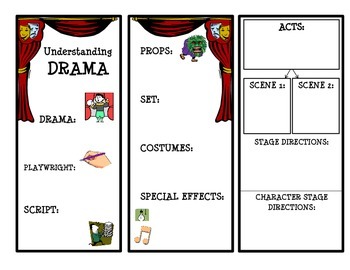

The story of a play is taken forward by means of dialogs. Here is a list of characters in Romeo and Juliet. The way in which the characters are portrayed and developed is known as characterization. Sometimes, these characters are of help in making the audiences focus on the play’s theme or main characters. While some characters play an active role throughout the story, some are only meant to take the story forward and some others appear only in certain parts of the story and may or may not have a significant role in it. The character that the protagonist conflicts with, is the antagonist or villain.

The main character in the play who the audience identifies with, is the protagonist. Actors in the play have the responsibility of bringing the characters to life. Each character in a play has a personality of its own and a set of principles and beliefs. The characters that form a part of the story are interwoven with the plot of the drama. Then come the consequences of the climax and the play ends with a conclusion. Generally, a story begins with exposing the past or background of the main and other characters, and the point of conflict, then proceeds to giving the central theme or climax.
ELEMENTS OF DRAMA SCRIPT SERIES
The story unfolds through a series of incidents that share a cause-and-effect relationship. A struggle between two individuals, the relation between them, a struggle with self, a dilemma, or any form of conflict of one character with himself or another character in the play, goes into forming the story’s plot. What the characters do, how they interact, the course of their lives as narrated by the story, and what happens to them in the end, constitutes the plot. The connection between the events and the characters in them form an integral part of the plot. The entertainment value of a play depends largely on the sequence of events in the story. Essentially, the plot is the story that the play narrates. The order of events occurring in a play make its plot. For example, the play Romeo and Juliet, is based on a brutal and overpowering romantic love between Romeo and Juliet that forces them to go to extremes, finally leading them to self-destruction. The theme of a play could be blind love or the strength of selfless love and sacrifise, or true friendship. For example, the theme of a play could be of how greed leads to one’s destroyal, or how the wrong use of authority ultimately results in the end of power. It is the message that the play gives to the audience. The theme is the philosophy that forms the base of the story or a moral lesson that the characters learn. It can either be clearly stated through dialog or action, or can be inferred after watching the entire performance. The theme of a play refers to its central idea. This Buzzle article introduces you to the elements of drama and their importance. What dictates most other dramatic elements is the setting that is the time period and location in which the story takes place. Lighting, sound effects, costumes, makeup, gestures or body language given to characters, the stage setup, and the props used can together be considered as symbols that are elements of drama. While some consider music and visuals as separate elements, others prefer to club them under staging which can be regarded as an independent element of drama.

It forms the central theme of the play around which the plot is built. Through the characters involved, the story has a message to give. The story progresses through verbal and non-verbal interactions between the characters, and the presentation is suitably supplemented by audio and visual effects. In enacting the roles, actors portray the character’s emotions and personalities. A story is dramatized, which means the characters and events in the story are brought to life through a stage performance by actors who play roles of the characters in the story and act through its events, taking the story forward. Out of these, the first two are the most important ones according to Aristotle.ĭrama can be defined as a dramatic work that actors present on stage.

The six Aristotelian elements of drama are, plot, character, thought, diction, spectacle, and song.


 0 kommentar(er)
0 kommentar(er)
